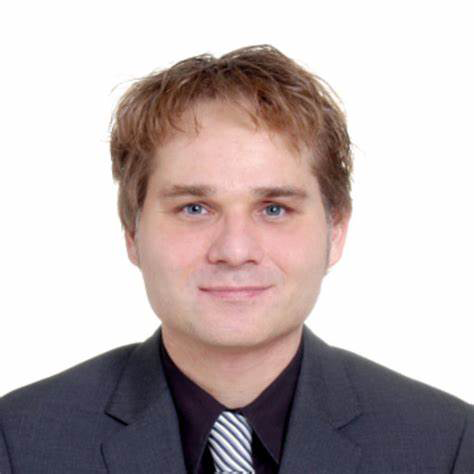Abstract
Topical formulations represent a direct and convenient route to deliver actives through the skin. The stratum corneum presents a major barrier to percutaneous absorption, that can limit the penetration of the active to the deeper skin layers or soft tissues. To assess skin penetration, several in vitro methodologies, including artificial membranes, reconstructed human skin equivalents, animal and human ex-vivo skin tissue, used in conjunction with diffusion cells have been developed. However, these approaches are limited in providing information of physiological relevance due to a variety of constraints. In this webinar, four researchers, working in the area of in silico models, will share with us the in silico methodologies that can be combined to provide a robust approach for predicting in vivo skin penetration kinetics. With these in silico methods, they hope to overcome the cost and ethical constraints of animal models on top of its poor translation to humans due to fundamental differences in skin structure and biology. These in silico methods also aims to counteract the inability of in vitro skin models to fully recapitulate in vivo skin penetration profiles as a result of disconnection from deeper tissues and the systemic circulation. By enhancing the robustness of in vivo prediction through in silico methods, the risk of clinical failure can be mitigated, the cost of product development can be reduced, which in turn accelerates time-to-market.
Topical formulations represent a direct and convenient route to deliver actives through the skin. The stratum corneum presents a major barrier to percutaneous absorption, that can limit the penetration of the active to the deeper skin layers or soft tissues. To assess skin penetration, several in vitro methodologies, including artificial membranes, reconstructed human skin equivalents, animal and human ex-vivo skin tissue, used in conjunction with diffusion cells have been developed. However, these approaches are limited in providing information of physiological relevance due to a variety of constraints. In this webinar, four researchers, working in the area of in silico models, will share with us the in silico methodologies that can be combined to provide a robust approach for predicting in vivo skin penetration kinetics. With these in silico methods, they hope to overcome the cost and ethical constraints of animal models on top of its poor translation to humans due to fundamental differences in skin structure and biology. These in silico methods also aims to counteract the inability of in vitro skin models to fully recapitulate in vivo skin penetration profiles as a result of disconnection from deeper tissues and the systemic circulation. By enhancing the robustness of in vivo prediction through in silico methods, the risk of clinical failure can be mitigated, the cost of product development can be reduced, which in turn accelerates time-to-market.
BIOS
Dr. Freda Lim is a Senior Scientist and Innovation Lead from the Materials Science & Chemistry Department of the Institute of High Performance Computing (IHPC, A*STAR). She received her Ph.D. in 2007, from Department of Chemistry at the National University of Singapore, specializing in Computational Chemistry. Her role as an Innovation Lead requires her to work closely with external stakeholders to develop and identify collaboration opportunities. Her current research interests include topics related to the Consumer Products and Consumer Care Industry. She led a team of researchers on developing in-silico models for formulations, human hair, skin and the delivery of chemical active onto and into these surfaces. Her research aims to develop formulations that are safer for consumers and the environment.
Dr. Marco Klähn is a computational researcher and head of the Polymer and Formulation group at the Institute of High Performance Computing, A*STAR, in Singapore. He earned a Ph.D. in computational biophysics from the Ruhr-Universität Bochum in Germany. Subsequently he conducted research in computational enzymology at the University of Southern California. For A*STAR he has been involved in a variety of projects covering broad topics in the area of physical (bio)chemistry, involving molecular simulation techniques applied to biological materials, polymers and ionic liquids. His current research focuses on enzyme optimization, hair and skin surfaces as well as biological membranes, where he uses molecular simulations to understand how to improve and modify properties of these materials.
Dr. Anjaiah Nalaparaju is a research scientist at Institute of High Performance Computing, A*STAR Singapore. He obtained his Ph.D. from the Department of Chemical and Biomolecular Engineering at National University of Singapore. His research expertise is in multiscale simulations to combine the molecular scale computations with real scale problems. He has developed the prototype biomimetic membrane models for enhanced water permeation and published his research work in reputed journals such as Nanoscale, Advanced Science, and Advanced theory and simulations. His current research is focused on employing multiscale simulation techniques to transdermal transport, in-silico skin modeling and speciality chemicals domain.
Dr James Chan received his B.Sc. (Pharmacy) (1st Class Hons) in 2011 and Ph.D. in 2015 from the Department of Pharmacy, National University of Singapore. He is currently jointly appointed as a Platform Lead in physiologically-based toxicokinetic modelling in the Singapore Institute of Food and Biotechnology Research, as well as a Senior Research Fellow in the Skin Research Institute of Singapore, A*STAR. His research interests are focused on the study of interaction of xenobiotics with biological systems using analytical techniques such as proteomics and metabolomics, coupled to in silico modelling approaches. James currently manages a research programme that includes modelling of skin penetration of drugs and chemicals, supported by research funding from the Biomedical Research Council and industry collaborations.
Dr. Freda Lim is a Senior Scientist and Innovation Lead from the Materials Science & Chemistry Department of the Institute of High Performance Computing (IHPC, A*STAR). She received her Ph.D. in 2007, from Department of Chemistry at the National University of Singapore, specializing in Computational Chemistry. Her role as an Innovation Lead requires her to work closely with external stakeholders to develop and identify collaboration opportunities. Her current research interests include topics related to the Consumer Products and Consumer Care Industry. She led a team of researchers on developing in-silico models for formulations, human hair, skin and the delivery of chemical active onto and into these surfaces. Her research aims to develop formulations that are safer for consumers and the environment.
Dr. Marco Klähn is a computational researcher and head of the Polymer and Formulation group at the Institute of High Performance Computing, A*STAR, in Singapore. He earned a Ph.D. in computational biophysics from the Ruhr-Universität Bochum in Germany. Subsequently he conducted research in computational enzymology at the University of Southern California. For A*STAR he has been involved in a variety of projects covering broad topics in the area of physical (bio)chemistry, involving molecular simulation techniques applied to biological materials, polymers and ionic liquids. His current research focuses on enzyme optimization, hair and skin surfaces as well as biological membranes, where he uses molecular simulations to understand how to improve and modify properties of these materials.
Dr. Anjaiah Nalaparaju is a research scientist at Institute of High Performance Computing, A*STAR Singapore. He obtained his Ph.D. from the Department of Chemical and Biomolecular Engineering at National University of Singapore. His research expertise is in multiscale simulations to combine the molecular scale computations with real scale problems. He has developed the prototype biomimetic membrane models for enhanced water permeation and published his research work in reputed journals such as Nanoscale, Advanced Science, and Advanced theory and simulations. His current research is focused on employing multiscale simulation techniques to transdermal transport, in-silico skin modeling and speciality chemicals domain.
Dr James Chan received his B.Sc. (Pharmacy) (1st Class Hons) in 2011 and Ph.D. in 2015 from the Department of Pharmacy, National University of Singapore. He is currently jointly appointed as a Platform Lead in physiologically-based toxicokinetic modelling in the Singapore Institute of Food and Biotechnology Research, as well as a Senior Research Fellow in the Skin Research Institute of Singapore, A*STAR. His research interests are focused on the study of interaction of xenobiotics with biological systems using analytical techniques such as proteomics and metabolomics, coupled to in silico modelling approaches. James currently manages a research programme that includes modelling of skin penetration of drugs and chemicals, supported by research funding from the Biomedical Research Council and industry collaborations.
Chair
Freda Lim, IHPC
Freda Lim, IHPC
Attendance is free but registration is required.
Kindly cancel your registration in case your plans change.
Kindly cancel your registration in case your plans change.
Attendance is free but registration is required.
Kindly cancel your registration in case your plans change.
Kindly cancel your registration in case your plans change.




